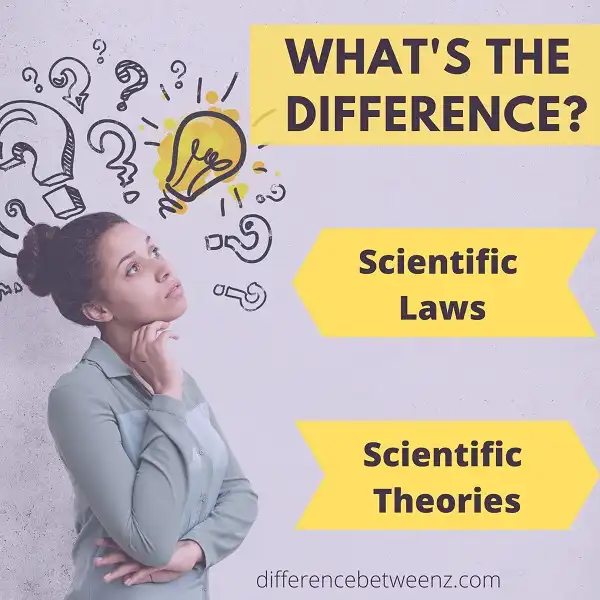Whether you’re a scientist or not, you’ve probably heard of the terms “scientific law” and “scientific theory.” But what do they actually mean? And what’s the difference between them? In this article, we’ll break it all down for you. Stay tuned!
What are Scientific Laws?
Scientific laws are statements that describe or predict a range of natural phenomena. They are typically formulated based on observations and experimentation, and they hold true under a wide range of circumstances. In many cases, scientific laws can be used to explain the behavior of systems that are too large or too small to be observed directly.
For example, the laws of motion help us to understand the motion of planets and galaxies, while the laws of thermodynamics explain the behavior of subatomic particles. Scientific laws are an essential part of the scientific method, and they play a vital role in our understanding of the universe.
What are Scientific Theories?
Scientific theories are proposed explanations of nature that have been supported by multiple lines of evidence. Theories are not facts or laws, but they are well-substantiated explanations that scientists use to understand the natural world. A scientific theory can be uncertain or contradicted by new evidence, but it can never be proven true with 100% certainty. Theories are constantly being updated and revised as new evidence is discovered.
Some well-known scientific theories include the theory of evolution, the theory of gravity, and the theory of relativity. Each of these theories has been supported by a vast amount of evidence and continues to be refined as new data is gathered. Scientific theories are an essential part of the scientific process, and they help us to better understand the natural world.
Difference between Scientific Laws and Scientific Theories
Scientific laws and scientific theories are often confused, but there is a big difference between the two. A scientific law is a concise statement that describes an observable phenomenon. It is generally accepted as true and can be used to make predictions about future events.
In contrast, a scientific theory is a more complex explanation for why something happens. It is based on observations and experiments, and it can be modified or rejected if new evidence arises. While scientific theories are not always proven to be true, they provide a deeper understanding of the natural world and help scientists to make new discoveries.
Conclusion
Theories are constantly tested and updated as new information is discovered, while laws are more static. However, it’s important to remember that theories can always be overturned with new evidence, so scientists must always be open to the possibility of change. As you can see, there are a lot of nuances when it comes to scientific terminology. It’s important to understand the difference between scientific laws and scientific theories so that you can better understand the world around you.


